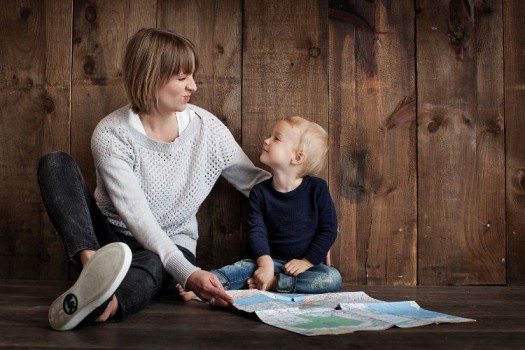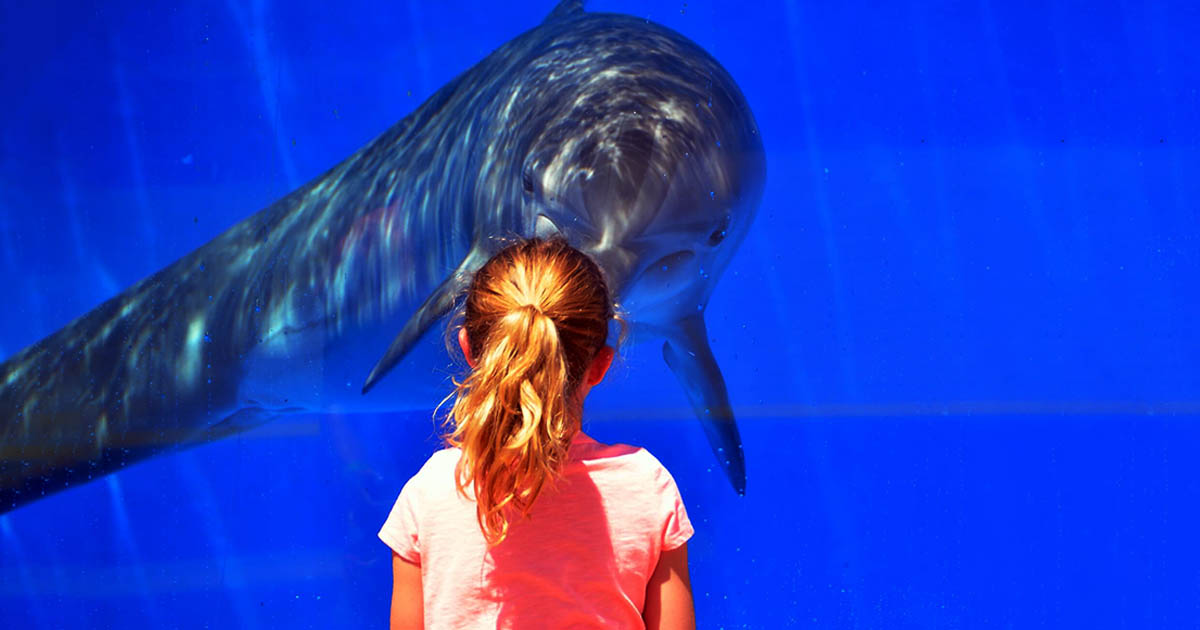Are you tired of traditional parenting methods that seem either too rigid or overly permissive? Have you considered the dolphin parenting style in your approach?
We will present you with interesting dolphin parenting facts and characteristics along with 5 strategies to implement dolphin parenting in your approach to raising your child. However, let us first understand what is dolphin parenting style.
What is Dolphin Parenting Style

Dolphin parenting is all about finding the right balance between being a cool, fun-loving buddy and a responsible, rule-setting adult. It’s like mimicking how dolphins interact – they play, they communicate, and they have their own rules in the big ocean.
As a dolphin parent – you want your kids to succeed and be happy in the long run, but you also know that the little victories, like acing that math test, matter along the way.
You’re not too strict like a tiger parent who’s always pushing, or too laid-back like a jellyfish parent who lets things slide.
You’ve got your own style, and it’s all about being there for your kids while giving them the space to grow and figure things out themselves.
In simpler terms, a dolphin parenting style involves providing comfortable room for children to make mistakes but is guided by the rules and regulations of the household.
Read More: What Are Parenting Styles? 4 Different Types and Impact
Origins of Dolphin Parenting Style
The term ‘dolphin parent’ was first coined by author Shimi Kang in her book ‘The Dolphin Way: A Parent’s Guide to Raising Healthy, Happy, and Motivated Kids – Without Turning into a Tiger‘.

Kang introduced what is dolphin parenting style as an alternative to the more stringent tiger parenting and emphasized the need for a more balanced approach.
While Kang’s approach still emphasizes long-term achievements and encourages children to work hard and take responsibility for their own success, she also places significant emphasis on emotional well-being and mental health as crucial components of genuine success.
Kang highlights that in contrast, the tiger parent is typically authoritarian, often employing a directive approach, pushing and directing their children, or a protective approach, hovering and micromanaging their children, ultimately undermining their sense of internal control and self-motivation.
On the other hand, the jellyfish parent tends to be permissive, having few rules or expectations and frequently indulging their children, leading to a lack of impulse control in their children.
Read More: The 4 Common Parenting Styles And Their Effects On Kids
What is dolphin mom parenting?
A dolphin mom is all about balance. She sets rules and responsibilities but also lets her kids have fun. She’s like that smart friend who teaches you important things without making it boring.

What is unique about her is that she can change how she parents based on what her child needs. So if her child is going the wrong way, she’ll be there to help them get back on track. But when they need love, she’s as gentle as a feather.
Kids with parents who have what is dolphin parenting approach often become really creative. They learn to make their own decisions and understand the results of what they choose.
But sometimes, because she’s not always predictable, it might be hard to talk to her, especially if her child is not very confident. It’s like trying to understand the sea – sometimes it’s calm, and other times it’s not.
Read More: What is Nacho Parenting? 5 Must-Know Tips for Parents
Sarah’s Case of Dolphin Mom Parenting
Sarah, a single mother of two, found herself struggling to strike the right balance between discipline and nurturing in raising her children, Alex (aged 7) and Emily (aged 10).
Feeling disheartened by the rigidity of the authoritarian approach and the chaos that came with a permissive one, Sarah decided to adopt a more flexible and empathetic parenting style, inspired by the principles of dolphin parenting.
Sarah’s approach involved fostering open communication, setting clear expectations, and emphasizing emotional well-being.
She created a structured routine for her children while providing them with opportunities for creative expression and personal growth. By maintaining a balance between guidance and freedom, Sarah aimed to nurture her children’s independence and resilience.
Sarah observed a significant improvement in her children’s overall happiness and academic performance, emphasizing the importance of fostering a nurturing yet structured environment.
Dolphin Parenting Facts & Characteristics
Current psychological research suggests that dolphin parenting embodies several effective parenting traits, contributing to positive child development.
However, it’s important to note that the ideal parenting approach remains subjective and varies depending on multiple factors.

Understanding what is dolphin parenting requires us to look at the specific characteristics and facts about this approach.
Moreover, parenting styles may evolve over time as children mature and their needs change. If you’re interested in integrating some dolphin parenting characteristics into your approach, it could be beneficial.
Alternatively, exploring other parenting styles may also provide valuable insights and understanding.
The characteristics and dolphin parenting facts, as observed in various parenting approaches, include the following:
1. Non-overprotective
Dolphin parents prioritize their children’s safety and well-being, yet they encourage exploration and learning through life experiences, fostering resilience and adaptability.
2. Balanced guidance
Unlike strict tiger parents, Dolphin parents provide guidance and rules, while also recognizing the importance of unstructured play and leisure time for their children’s development and creativity.
3. Supportive nature
Dolphin parents strike a balance between supporting their children’s endeavors and choices and ensuring they do not impose excessive pressure or harsh punishments. They prioritize building strong bonds with their children, fostering an environment where mistakes are seen as opportunities for growth.
4. Adaptive Parenting
One of the defining dolphin parenting facts is the ability to adapt to the changing needs of their children as they grow. They understand that parenting styles need to evolve alongside their child’s development and varying stages of life.
5. Collaborative approach
One of the important dolphin parenting facts is that dolphin parents adopt a more collaborative approach, promoting independent decision-making and creativity.
They set realistic expectations and encourage hard work while also fostering an environment that nurtures the child’s individuality and self-expression.
Read More: What is Nacho Parenting? 5 Must-Know Tips for Parents
Now that you have gained an understanding of what is dolphin parenting style, let us now look at how you can implement it in your parenting approach.
Implementing Dolphin Parenting Style
Implementing the dolphin parenting style involves fostering a balanced and nurturing environment that promotes both discipline and emotional well-being.
Here’s a 5 step guide to help you incorporate dolphin parenting into your approach:
1. Creating a Positive Atmosphere
Create an atmosphere that encourages your child to explore their interests and fosters their creative expression, allowing them the freedom to make choices and learn from their experiences.
Set reasonable rules and expectations, ensuring your child understands the boundaries while providing them with the space to learn and grow within these boundaries.
2. Openly Communicate With Your Child
Foster open communication with your child, creating an environment where they feel comfortable expressing their thoughts and emotions without fear of judgment.

Teach your child the importance of empathy and understanding towards others, nurturing their emotional intelligence, and fostering a sense of compassion and respect.
3. Balanced Discipline
Employ a balanced approach to discipline, utilizing constructive guidance and positive reinforcement, while avoiding overly harsh punishments that could negatively impact their emotional well-being.
Provide unwavering support and encouragement, celebrating their successes and helping them navigate through challenges with confidence and resilience.
4. Lead By Example
Lead by example, demonstrating the values and behaviors you wish to instill in your child, as they often learn through observation and imitation.
Create a loving and secure environment where your child feels safe, valued, and cherished, promoting their overall well-being and fostering a strong parent-child bond.
By following these steps and integrating the principles of what is dolphin parenting into your approach, you can create a nurturing and supportive environment that promotes your child’s holistic development and emotional growth.
Read More: How To Be A Great Parent: 18 Hacks and Fundamental Insights
Empowering Your Child
dolphin parenting stands out as a balanced and nurturing way to raise kids, focusing on both discipline and emotional well-being. Through our exploration of this parenting style, we’ve seen the importance of creating a supportive environment that allows children to grow while providing necessary guidance and care.
Sarah’s story shows what is dolphin parenting and how it can make a positive impact. As a single mom, she found the perfect balance between discipline and nurture, helping her kids thrive both emotionally and academically.
Remember, every parenting style is unique and depends on various factors. Adapting to your child’s changing needs is key as they grow and develop.
By applying the simple strategies outlined in this article, you can empower your children to become resilient and kind individuals, ready to face life’s challenges with confidence.
Frequently Asked Questions (FAQs)
1. What is dolphin parenting style?
Dolphin parenting is a balanced approach that combines nurturing guidance with reasonable rules, allowing children the freedom to explore and learn from their experiences, akin to how dolphins interact in their environment.
2. What are some dolphin parenting facts?
Dolphin parenting prioritizes a non-overprotective yet supportive environment for children, emphasizing balanced guidance, open communication, adaptability, and a collaborative approach that encourages independent decision-making and creativity.
3. How to implement the dolphin mom parenting approach?
To implement the dolphin mom parenting approach, create a positive atmosphere that encourages exploration and fosters creative expression, communicate openly with your child, provide balanced discipline, lead by example, and foster a loving and secure environment to promote your child’s overall well-being and growth.
4. Is dolphin parenting effective?
Dolphin parenting has been found to be effective in fostering children’s emotional intelligence, resilience, and independence, as well as in promoting a positive parent-child relationship. However, the effectiveness of any parenting style can vary depending on individual circumstances and the specific needs of the child.












Leave a Reply